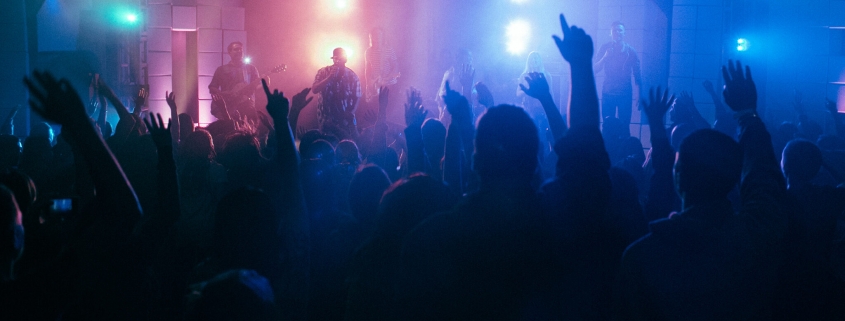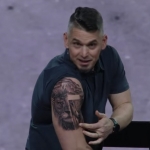Finally, an honest conversation about CCM and Gospel music
This article originally appeared at Baptist News Global on June 13, 2025.
One recurring story in recent years has been Christian nationalist worship leaders wielding worship as a weapon for dominating their neighbors rather than as a vehicle for liberating them.
The insurrection of January 6 unfolded as New Apostolic Reformation charismatics sang worship songs. The 2024 election was won as events like the Courage Tour used worship songs led by independent charismatics to get out the vote for Trump. Sean Feucht led a 50-state-capitol worship tour that culminated in spiritual warfare on the National Mall, welcomed on video by Donald Trump himself. The recent riots in Seattle unfolded as independent charismatics led worship songs in spiritual warfare against LGBTQ people.
At the event in Seattle, one of the worship leaders yelled: “This is what we do! Prayer is a weapon! Worship is a weapon! Praise is a weapon! Your voice is a weapon! Your sound is a weapon!”
While the independent charismatics who are leading worship as a weapon of political warfare against their neighbors may get the headlines, there are many charismatics who consider their worship to be an opportunity for embodied healing. So rather than completely rejecting charismatic worship altogether, the path toward healing may involve being honest about the charismatic worship leaders who cause harm, as well as the ones who provide healing.
This summer, I attended the 2025 Summer Institute for Global Charismatic-Pentecostal Studies at Emory University’s Candler School of Theology, which was led by historian Leah Payne. The conference was one of the most encouraging and courageous events I’ve ever attended for exploring many of the most controversial questions and concerns about the problems and possibilities for modern worship many evangelicals aren’t even aware of.
Evangelical insecurity and Contemporary Christian Music
In the first session, Payne explored how CCM shapes the culture through the insecurity of evangelical parents hoping to save their nation and their kids. While the consumer of CCM has been the Christian teenager in youth groups, the customer has been the mom who buys the music or subscriptions and who determines what kids are allowed to listen to.
Because evangelicals have been overwhelmingly shaped by fear of the rapture and fear of hell, their primary concern for decades has been saving their teenagers from missing the rapture, having to face the tribulation and being sent to hell. As Payne put it, “Evangelicals … became convinced that teens were in a particularly precarious spiritual state, which meant that CCM sales had cosmic importance.”
Evangelical battles for the future of their teens also were connected to the future of the nation.
“The teen years were this must-win battlefield in the war for the future of the Christian faith and the nation and even the world,” Payne explained. “And mass media was an effective weapon to be deployed in that fight for them. And they set out to save the souls of the young and to shape the nation through music.”
Industrializing a personal encounter
Along with the angst of fighting a war for the future comes the trappings of turning worship into an industry. “What does it mean to industrialize a personal encounter … a formative moment?” asked Caleb Maskell, associate national director of theology and education for Vineyard USA.









Leave a Reply
Want to join the discussion?Feel free to contribute!